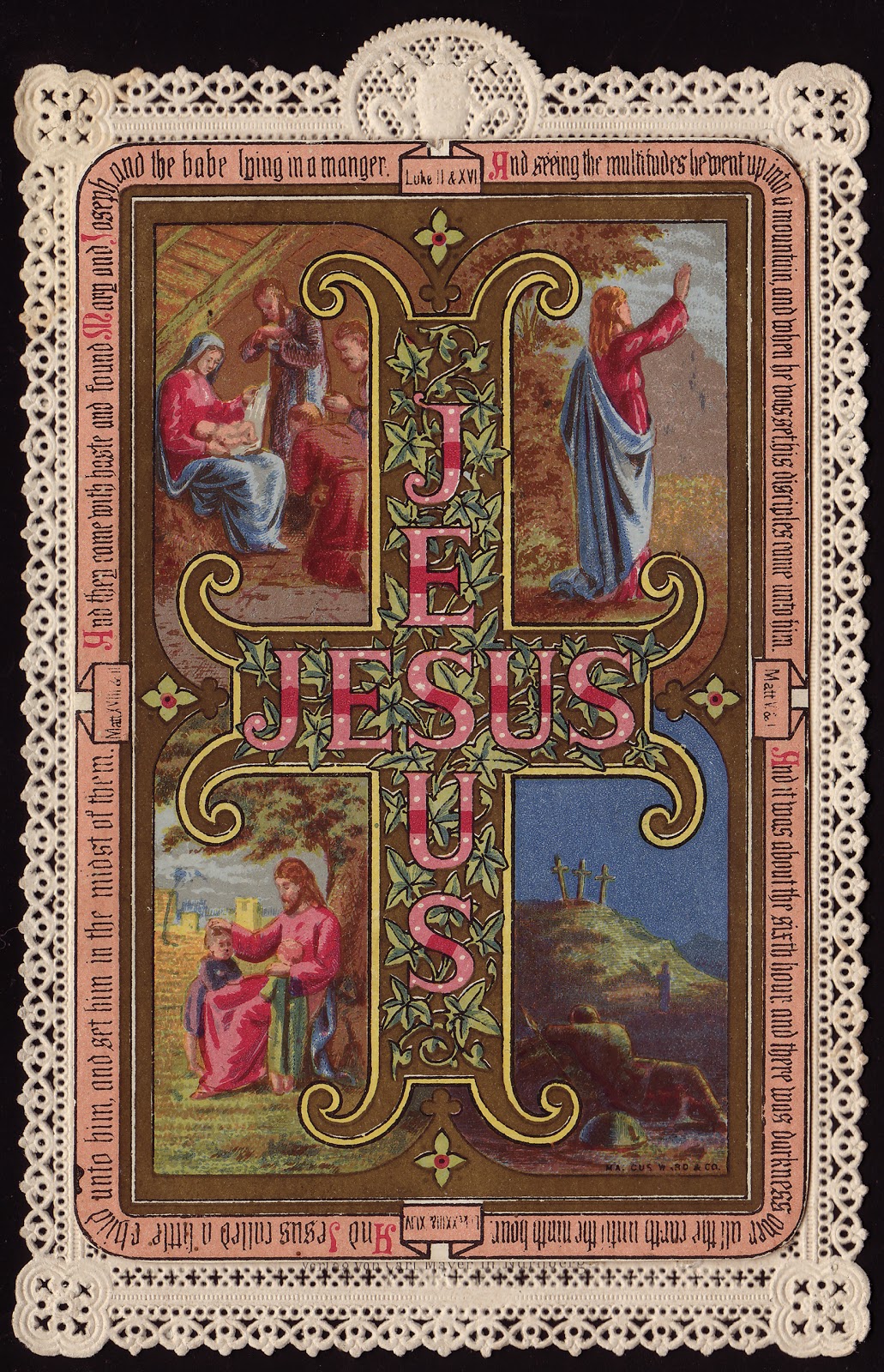
“”I am the voice of one crying out in the wilderness,” (Jn 1:23).
The text proposed is of St. John the Baptist replying to the Jerusalem messengers saying, “I am the voice of one crying out in the wilderness.” In explaining this text and introducing the material to be preached, I take on two short questions.
First why does Holy Mother the Church in this holy time of Advent, in which the whole interest ought to be about Christ, makes such a great mention of St. John the Baptist in today’s gospel, and also on the past Sunday? Are not the two feasts of St. John which the church observes sufficient, namely his birth and his passion?
For this response I find in St. John four excellences greater than other saints. First is his gracious birth, because he already was holy before his birth. Second is his painful passion, because he was decapitated because of the dance of a young girl. Third is his virtuous life because when he was five years old, he immediately left the world and entered the wilderness. Fourth is the fruitful doctrine of announcing and preaching the coming of the Messiah. From these four excellences God has exalted John above all saints saying, “There has not risen among them that are born of women a greater than John the Baptist,” (Mt 11:11), For this reason Holy Mother the Church celebrates feasts of St. John four times. First of his birth. Second of his suffering. Third of his virtuous life. And fourth of his fruitful preaching, and about this we read in today’s gospel. For no other saint is there a feast four times a year, only St. John the Baptist. Of the apostle Peter we have three feasts. Of St. Paul, two, but of St. John, four. And of this feast today he himself says, “I am the voice of one crying out in the wilderness,” (Jn 1:23), namely from the efficacy of preaching and his teaching. The first question is clear.
The second question is more subtle. Why does St. John, wishing to promote his teaching, call himself “a voice,” saying: “I am the voice of one crying out …etc.?” Wouldn’t it have been better [to say], “I have a voice”? Response: St. John calls himself a voice for two reasons.
First in excellently demonstrating his office, with respect to the first reason. The proper office of the voice is to manifest and show the purpose of the heart, or the concept of the mind. The Philosopher [Aristotle] says: “Spoken words are signs of the passions which are in the soul, ” (Perihermeneias, 1). Properly speaking there is a great difference between a word and a voice, although commonly speaking they are taken for the same thing, because a word is the concept of the mind before it is expressed by the mouth, but voices are what are brought forth. So logic says, a voice is a sound coming out of the mouth of an animal, properly speaking. Christ is the eternal Word, because he had been hidden in the divine mind: “In the beginning was the Word, and the Word was with God, and the Word was God,” (Jn 1:1), hidden and secret. But God the Father sent a voice, John the Baptist, to manifest and show forth the divine Word, as he did when he said, “Behold the Lamb of God,” (Jn 1:29). Behold John says that he is the voice, by showing the difference between the Word and the temporary voice.
As for the second reason. The skill of a preacher is that he preaches with all his members and powers. Not only the mouth of the preacher should preach, but also his life, his morals and reputation. Also the intellect by studying, the memory by contemplating, the heart, hand, gestures, all used continually and skillfully. So a good preacher ought to be a voice in every way. The logicians say that a voice is homogeneous, because each part of the voice is a voice. So every aspect of a diligent preacher ought to be a voice. Jerome: “Everything of a priest ought to be vocal.” On this account St. John, in responding to the messengers sent to him said: “I am the voice,” which is to say whatever is in me, is wholly a voice, because all of it preaches. The theme is clear.
About this voice I find a wonderful prophecy of David, who allegorically prophesying about St. John says:
“The voice of the Lord is upon the waters; the God of majesty has thundered, The Lord is upon many waters. The voice of the Lord is in power; the voice of the Lord in magnificence. The voice of the Lord breaks the cedars: yea, the Lord shall break the cedars of Lebanon. And shall reduce them to pieces, as a calf of Lebanon, and as the beloved son of unicorns. The voice of the Lord divides the flame of fire: The voice of the Lord shakes the desert: and the Lord shall shake the desert of Cades. The voice of the Lord prepares the stags: and he will discover the thick woods: and in his temple all shall speak his glory,” (Ps 28:3-9).
Here John is called a voice seven times because of seven teachings, which St. John was preaching.
The first was the teaching of baptism. [doctrina baptismalis]
Second was the teaching of penance. [doctrina poenitentialis]
The third was authoritative teaching [doctrina magistralis]
The fourth was rebuking teaching [doctrina increpativa]
The fifth was corrective teaching [doctrina correctiva]
The sixth was blaming teaching [doctrina reprehensiva]
The seventh was instructive teaching [doctrina instructiva]
BAPTISMAL TEACHING
First of all, I say that the first teaching of St. John was baptismal. All the evangelists say that when St. John came out of the desert in which he had lived for twenty-five years, as Hugh says, doing severe penance, when at age thirty he came out of the desert, in his exit he began to preach a baptism of repentance around the region of the Jordan. Lk 3: “And he came into all the country about the Jordan, preaching the baptism of penance for the remission of sins,” (v. 3), saying, ” but there has stood one in the midst of you, whom you know not,” (Jn 1:26), but I shall show him to you, therefore you will receive his teaching. The people said to him, “And what ought we to do that we might receive him worthily? He responded to them that they should receive a sign of baptism in water. He baptized them under this form, “I baptize you in the name of the one who is to come.” This baptism of John was a sign of Christ, just as the cross is a sign of the crucified. From this preaching of the baptismal teaching St. John is called the “voice of the Lord upon the waters,” (Ps 28:3) that is, the Jordan. Gloss: He was preaching one baptism, and he was giving another, because he gave the baptism of water, and was preaching the baptism of grace for the remission of sins. About this scripture: “I baptize you in the water unto penance, but he who shall come after me, is mightier than I, whose shoes I am not worthy to bear; he shall baptize you in the Holy Ghost and fire,” (Mt 3:11). Note “fire” [igni] is in the ablative case according to the old grammar. But why does he say “fire” [igni]? Note the error of those who say that some are baptized by fire [igne]. But “of fire” [igni] is said for two reasons. First, in the primitive church in baptism the Holy Spirit descended visibly in the form of fire, and this exposition is more common for showing that the Holy Spirit was given and showed himself exteriorly by the sign of visible fire. A second reason, because just as the world had to be washed and purified through water, namely in the time of Noah, because the peoples were exceedingly heated by lust, and so the water of the flood came, so it shall be purified through fire at the end of the world because of the charity of the multitude had turned cold. This reason is from St. Thomas Aquinas O.P., in IV Sent. So also God ordained two floods for purifying souls, namely the flood of baptismal water to cool the sinful tendencies [fomitem] (Cf. Summa, III, q.27, a.3 ) of original sin. The second flood of the fire of purgatory, because after baptism we cool and become negligent, and are stained by sins, therefore God ordained the fount of purgatory, where the baptized soul is baptized by a good angel, as St. Thomas determines, because the devil has already been conquered by him who is led to purgatory, therefore the conquered ought not to incarcerate the victor. This baptism is hard and terrible. About which the soul can say who ought to be baptized there. “I have a baptism wherewith I am to be baptized: and how am I straitened…,” (Lk 12:50). See why it is said, “The voice of the Lord over the waters.” And because then John baptized Christ, therefore it is added, “the God of majesty has thundered, The Lord is upon many waters,” (Ps 28:3).
PENITENTIAL TEACHING
The second teaching which St. John preached was the teaching of penance, Mt 3: “And in those days John the Baptist came preaching in the desert of Judea. And saying: Do penance: for the kingdom of heaven is at hand,” (Mt 3:1-2). After he had baptized them he gave them a penance saying, “From the fact that you have received my baptism as a sign, therefore lest sins keep you from knowing and receiving the Messiah King, you should do penance. St. Matthew says, ch. 3, that they were confessing their sins generally saying, “I was proud, vain, pompous, etc.” And St. John gave them a penance of a humble prayer. John was teaching his disciples to pray, (cf. Luke 11: 1). Others were confessing generally saying, “Clearly I was greedy, usurious, etc.,” to whom John gave a penance of restitution, lest the dust of avarice cloud their eyes so they could not recognize Christ. Another came and he said, “Father, I am lustful etc.” to whom he gave a penance of abstinence from food and affections [affectionum]. Mark 2: “And the disciples of John … used to fast,” (v. 18). The same for the other sins. See how John was preaching the teaching of penance. Therefore it is said, “The voice of the Lord is in power,” (Ps 28:4), namely indicating penance. Note “the voice of the Lord in power;” he does not say in the sacrament. Note how the holy doctors of theology distinguish the two-fold penance, namely of the sacramental penance, and of virtual penance. [poenitentia virtuali]. Sacramental penance is when a man confesses his sins, and is absolved. Such a penance is called a sacrament. The sacrament of penance has three parts, which are contrition, confession and satisfaction. Virtual penitence does not have parts, just as none of the other sacraments, as St. Thomas says in Summa, III, q. 91, and IV Sent., dist. 16, q. 1, a. 1, ql. 1 & 4. And when John was preaching, this sacrament had not yet been instituted, nor the power of forgiving sins granted to men, therefore John is not called the voice of God in the sacrament. The other is voluntary virtual penance, and virtuous, which is not a sacrament, like fasting, to make a pilgrimage, to discipline oneself and the like. And of this kind it is said, “the voice of God in power, etc.” because St. John enjoined not sacramental penance but virtual, and David agrees saying elsewhere: “Behold he will give to his voice,” namely to St. John, “the voice of power,” (Ps 67:34) he does not say, of the sacrament. Note as St. Thomas, III, q. 85; IV Dist., 14, q. 1, a. 1, because penance as it is a sorrow of the will, with right choice is a virtue or an act of virtue, it is not just an emotion. And penance is a special virtue because it has general matter under a special aspect for its object, namely all sins as fixable [emendibilia] by an act of man, as St. Thomas states III, q. 85, a. 2. And it is a moral virtue, not a theological, and it is a part of justice.
AUTHORITATIVE TEACHING
The third teaching is authoritative, because just as a good master for diverse children has diverse lessons, so St. John for the diverse conciliations of men gave diverse instructions. St. Luke says in ch. 3 that various kinds of people were coming to him, interrogating him and saying, “Master, what ought we to do? ” He replied: “He that has two coats, let him give to him one who has none; and he that has meat, let him do in like manner,” (Lk 3:11), Two tunics: one is necessary, the other is superfluous, which rots, and the poor die of cold. How many poor women there are who because of the lack of a shawl are not able to go to mass, and you rich cling to your surplus clothing etc. Same for meat etc.
Next the publicans came saying to him, “Master, what shall we do?” (Lk 3:12), The Gloss says at this place that publican is here taken for someone who has public office, because either he is a bailiff or a lawyer or a witness etc. To whom John replied, ” Do nothing more than that which is appointed you,” (v.13) If they were leaders he was saying,” Remember what you are obliged to do by the oath which you took when you received your office, namely that you should do justice and correct the people and notorious sins, and should regard in all things the common good. Therefore so do; beware of anything else.
Third the soldiers and guards [scutiferi] came to him saying, “And what shall we do? And he said to them: Do violence to no man; neither calumniate any man; and be content with your pay,” (v. 14). Behold the rules and teaching for the soldiers. Note, “Do violence to no man.” It is said against those who are quick draw their dagger or sword in their hand to threaten beggars [pauperes] and the wretched who cannot defend themselves. Also “neither calumniate” your subjects demanding from them monies and their goods in many ways, and they deceive the ordinary folks by saying that they are gracious in demanding, since they nevertheless include those in the castle or in the church as long as they shall give, and they too are bound to restitution. Also “and be content with your pay,” as salary, of the return you receive for the defense of the people. Don’t pursue superfluities, or vanities, but reckon what you have and as much as you can spend, and from your goods give for your soul a fourth or at least a fifth part out of love of God. You should never give it all to your belly, to mules and to armed ruffians etc. See why he says, “The voice of the Lord in magnificence,” (v. 4), namely of giving counsel and a manner of living to each, “His work is praise and magnificence,” namely St. John, “and his justice continues for ever and ever.” (Ps 110:3).
REBUKING TEACHING
The fourth teaching is rebuking [increpativa], by denouncing vices and sins, saying, “You brood of vipers, who has showed you to flee from the wrath to come? Bring forth therefore fruit worthy of penance,” (Mt 3:7-8). Note “brood of vipers;” the Gloss says here that vipers draw venom from the womb of their mother and are naturally poisonous. Such is the condition of the Jews, so John calls them a brood of vipers, saying, “You brood of vipers, who has showed you to flee from the wrath to come?” as if to say, no one. ” Bring forth therefore fruit worthy of penance,” that is you should do penance measured against the quality and quantity of your sins. Note how the Jews are deceived just as now many Christians are deceived saying,” Has not God promised to Abraham and to his offspring his blessing? (Gen 22). But God was saying this because of the Messiah, the son of Abraham according to the flesh. Therefore Christ said to the Jews: “If you be the children of Abraham, do the works of Abraham,” (Jn 8:39). Many Christians of wicked life are victims of this blindness and error, who do no penance for their sins, and when thy are rebuked they reply, “He that believes and is baptized, shall be saved,” (Mk 16:16). Do you want to know how stupid this is? The Lord is preparing a wedding banquet which he has proclaimed through the whole earth. “Whoever has been faithful to me and shall have clean hands, shall dine with me.” There is told the story of the peasant etc. Same for the Lord and our king Jesus Christ, on behalf of whom it has been proclaimed. “He who believes etc.” If then a man at the moment of death, believes, and has clean hands, he goes to the banquet. He is OK. Otherwise, there remains the pitchfork of hell, because these words, “He who believes and is baptized,” does not refer to the past time, but to the conjoined future. You have believed and have been purified in baptism. But since then you have been dirtied etc. It is necessary therefore that when the man goes to the banquet he believe and have clean hands. Therefore Isaiah said: “Wash yourselves, be clean,” (Is 1:16). Put down that vain confidence. From this rebuking teaching St. John is said to be the “The voice of the Lord breaking the cedars,” (Ps 28:5), that is, the proud.
CORRECTIVE TEACHING
The fifth teaching was corrective in correcting and refraining the envy of his disciples. The disciples of John, out of zeal for their master, envied Christ, because when Christ began to preach and baptize he was drawing people to himself and they were leaving John. No wonder. About this the disciples of John said, “Rabbi, he that was with you beyond the Jordan, to whom you gave testimony, behold he baptizes, and all men come to him,” (Jn 3:26). Behold the flame of the fire of envy which John quenched by his corrective teaching saying, “This my joy therefore is fulfilled. He must increase, but I must decrease. He who comes from above, is above all,” (Jn 3:29-31). From this St. John is said to be, “The voice of the Lord dividing the flame of fire,” (Ps 28:7). O and how this voice would be necessary among us that it might extinguish the flame of the fire of envy which burns too much in the world, not only of envy of temporal goods, but also of a certain envy which is a sin against the Holy Spirit, namely the envy of fraternal grace. For example, if some religious wishes to keep the rules etc., immediately the others, envying, murmur and impugn him calling him a hypocrite and singular etc. And so the flame of the fire of envy burns brighter. Not so if he is a ruffian [ribaldus]. He is even praised saying, “O how welcome is that brother, etc.” Also if he has the grace of devotion or of preaching or such. Same for clergy, laity and women. Note for this, the cry of the prophet: “To thee, O Lord, will I cry: because fire has devoured the beautiful places of the wilderness, and the flame has burnt all the trees of the country,” (Joel 1:19). Note that “wilderness” signifies religious life because of the harshness of life in which religious ought to live, but the fire of envy devours all. Trees of religion are the worldly whom already the flames of envy have ignited.
BLAMING TEACHING
The sixth teaching is blaming, by blaming and convicting King Herod of concubinage. He had a wife, but because she was not as fair [alba], or beautiful, or bejeweled and made up [composita] as he wished, nevertheless she was the daughter of a king, and, despised. So Herod took on a mistress. Seeing this, John the Baptist came to him and reprehending him said: “[Herod,] it is not lawful for you to have your brother’s wife,” (Mk 6:18). From this St. John is called: “The voice of the Lord shaking the desert,” (Ps 28:8).
INSTRUCTIVE TEACHING
The seventh teaching is instructive, like a good father when he doesn’t know how or is unable to instruct his sons, he sends them to a master that they be prepared by him. So St. John did for his disciples whom he was not able to instruct so that they might believe in the true Messiah, Jesus Christ. For this reason, when he had been imprisoned and near death he sent them to Christ as to a teacher that they might be instructed by him in the truth. Matthew 11: “Now when John had heard in prison the works of Christ: sending two of his disciples he said to him: Are you he who is to come, or should we look for another?” (vv. 2-3). From this St. John is called, “The voice of the Lord preparing the stags,” (Ps 28:9).
Note that good Christians are called “stags” because of the great leap which they take from earth to heaven, therefore David, in the person of Christ says: “Who has made my feet like the feet of harts: and who sets me upon high places,” (Ps 17:34). The feet by which we leap to Paradise, are true belief and obedience. The right foot is true belief [vera credentia]. The left, obedience. But some err by leaping, who believe they can ascend into heaven and descend into hell, but they have a broken right or left foot or both, because they neither have faith nor a good life. Those who doubt in faith have a broken right foot, therefore they are not able to leap into heaven. Those with a broken left foot, are those who have true belief, but do not have obedience nor good life. However the disciples of John, only limped on their right foot, because they did not believe, but not on their left, because they were living well. Therefore John sent them to Christ that he might cure them. To whom, having been cured, Christ said, “They who were limping, etc.,” now follow. After he said, “The voice of the Lord prepares the stags: and he will discover the thick woods,” namely Jesus Christ by his miracles which he did which John’s disciples saw, “and in his temple all shall speak his glory,” (Ps 28:9). Behold why St. John the Baptist said to the messengers, “I am the voice of one crying out in the wilderness,” (Jn 1:23).”
Love,
Matthew













